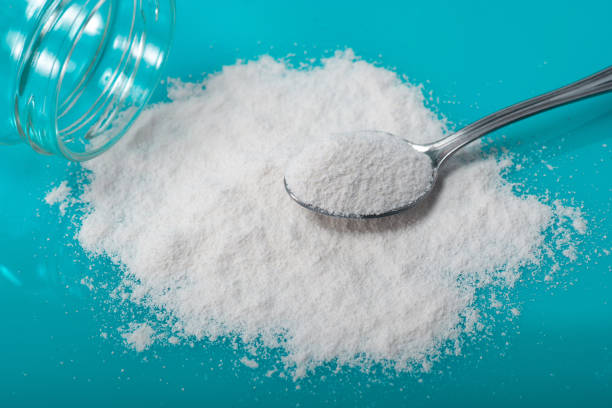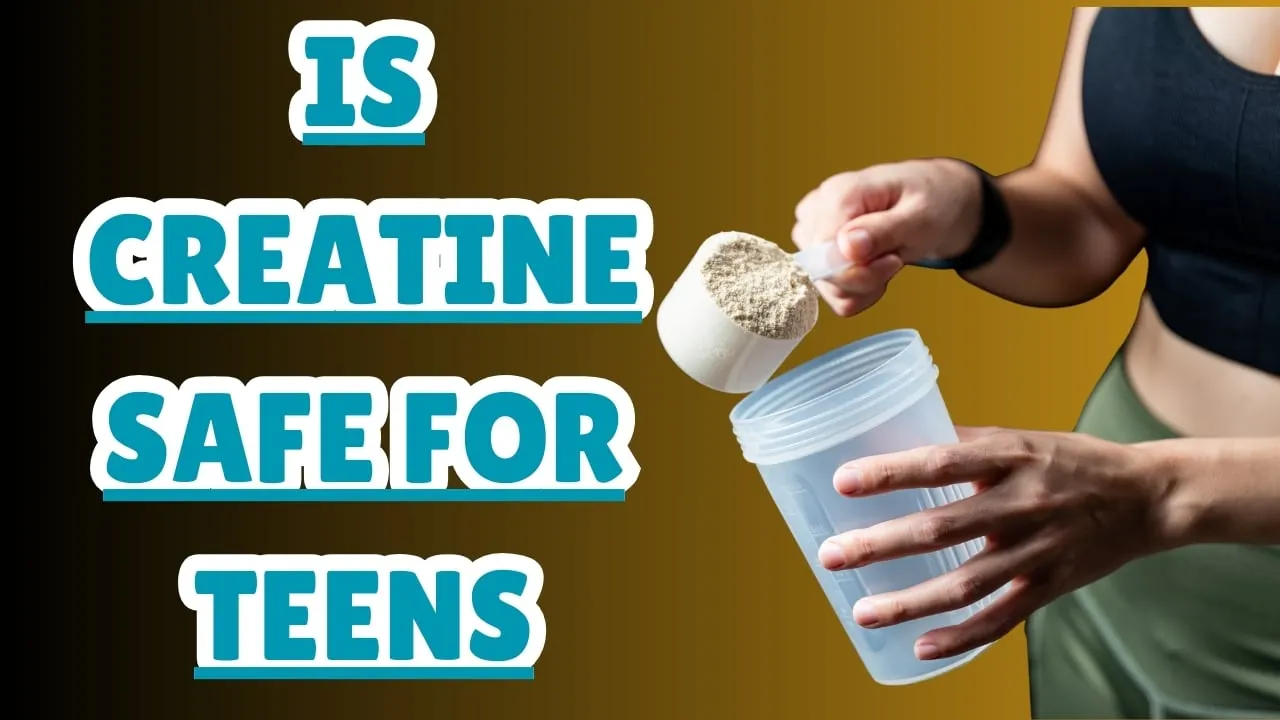Is Creatine Safe for Teen Athletes? Exploring Creatine Supplementation
Is Creatine Safe for Teen Athletes? The Truth About Creatine Supplementation and Its Benefits
Creatine is a popular dietary supplement often used by athletes to boost performance and build muscle. However, when it comes to young athletes, questions about creatine's safety and efficacy often arise.
This article dives deep into the science, exploring the benefits, safety concerns, and practical tips for teen athletes considering creatine supplementation. If you're a parent, coach, or teen athlete wondering whether creatine is safe, this guide is your go-to resource.

Article Outline
1. What Is Creatine and How Does It Work?
2. Why Is Creatine So Popular Among Teen Athletes?
3. Can Teen Athletes Benefit From Creatine Supplementation?
4. Is Creatine Safe for Teenagers? The Science Behind Its Safety
5. What Are the Potential Side Effects of Creatine?
6. How Much Creatine Should Teen Athletes Take?
7. The Best Forms of Creatine for Young Athletes
8. Is Creatine Legal for High School Athletes?
9. Common Myths About Creatine Supplementation
10. Tips for Safely Using Creatine in Teen Athletes
1. What Is Creatine and How Does It Work?
Creatine is a naturally occurring compound stored within skeletal muscle. It plays a vital role in producing energy during high-intensity activities like sprinting or weightlifting.
Creatine is primarily synthesized in the liver, kidneys, and pancreas, and can also be obtained from dietary sources such as red meat and fish.
In the body, creatine is stored as phosphocreatine, which helps regenerate ATP (adenosine triphosphate) – the energy currency of our cells.
This mechanism explains why creatine supplementation has been extensively studied for its ability to enhance athletic performance.

2. Why Is Creatine So Popular Among Teen Athletes?
Many young athletes are drawn to creatine because it is often associated with improved muscle mass and strength.
Athletes looking to enhance their performance during sports or workouts frequently turn to this supplement due to its widespread reputation as both effective and relatively safe.
Among adolescent athletes, creatine is particularly appealing because it provides a natural way to improve endurance and power.
Studies suggest that creatine supplementation on performance can be especially beneficial for activities requiring short bursts of energy.

3. Can Teen Athletes Benefit From Creatine Supplementation?
The benefits of creatine are not limited to adult athletes.
Research indicates that teenage athletes may also benefit from creatine supplementation, especially when it comes to increasing muscle mass, strength, and recovery after intense exercise.
Creatine may also support cognitive function, making it an attractive option for both physical and mental performance.
While these potential benefits of creatine are promising, it is crucial to ensure that supplementation is appropriate and safe for each individual's needs.

4. Is Creatine Safe for Teenagers? The Science Behind Its Safety
Is creatine safe for teens? Evidence suggests that creatine is generally considered safe for healthy athletes of all ages, including teenagers, when used as directed.
Studies involving creatine supplementation in children and adolescents have shown no significant adverse effects, provided the dosage is within recommended guidelines.
However, examining the safety of creatine use in young athletes is essential. Parents and coaches should ensure that teen athletes are properly educated about the supplement and its usage to avoid misuse.

5. What Are the Potential Side Effects of Creatine?
The side effects of creatine are rare but worth discussing. Some creatine users report minor gastrointestinal discomfort, dehydration, or muscle cramping, though these issues are not universally experienced.
Long-term safety of creatine has been studied extensively, and no major health risks have been found in healthy athletes.
For teen athletes, it is critical to follow proper dosage guidelines and stay hydrated, as this minimizes the risk of potential side effects associated with creatine use.

6. How Much Creatine Should Teen Athletes Take?
For young athletes, a typical regimen of creatine supplementation involves starting with a loading phase of 0.3 grams per kilogram of body weight per day for 5–7 days, followed by a maintenance dose of 3–5 grams per day.
This approach has been shown to effectively increase creatine stores without causing unnecessary strain on the body.
Parents and coaches should monitor the use of creatine to ensure that teen athletes do not exceed the recommended dose. Supplementing with creatine responsibly ensures both efficacy and safety.

7. The Best Forms of Creatine for Young Athletes
Creatine monohydrate is the most studied and widely recommended form of creatine.
It is safe, effective, and cost-efficient, making it the top choice for most athletes, including teens. Other forms, such as creatine ethyl ester or buffered creatine, are also available, but they lack the extensive research backing that monohydrate has.
Young athletes should prioritize choosing high-quality products from reputable brands to ensure they are using safe and effective supplements.

8. Is Creatine Legal for High School Athletes?
Creatine supplementation is not banned by major sports organizations, including the NCAA, and is considered legal for high school athletes. However, schools and coaches may have individual policies regarding supplement use.
It is important for teen athletes and their guardians to discuss the use of dietary supplements with coaches or sports officials to ensure compliance with any applicable guidelines.

9. Common Myths About Creatine Supplementation
- Myth: Creatine is a steroid.
- Fact: Creatine is a naturally occurring compound found in food and the human body, not a synthetic hormone.
- Myth: Creatine causes kidney damage.
- Fact: Research shows that creatine is safe for healthy individuals when used correctly.
- Myth: Creatine is only for bodybuilders.
- Fact: Creatine can benefit athletes of all ages and disciplines, including teen athletes participating in team sports or endurance activities.
Debunking these myths is crucial to understanding the true benefits of creatine supplementation.

10. Tips for Safely Using Creatine in Teen Athletes
- Consult a Healthcare Professional: Before starting creatine, consult a doctor or sports nutritionist.
- Follow Recommended Dosages: Stick to scientifically supported dosage guidelines to avoid misuse.
- Stay Hydrated: Adequate hydration is key when using creatine.
- Combine with a Balanced Diet: Creatine supplementation works best when paired with proper nutrition.
- Educate on Usage: Ensure teens understand the purpose and effects of creatine supplementation.
Key Takeaways
- Creatine is a safe and effective supplement for many young athletes when used correctly.
- It can enhance performance, increase muscle mass, and support recovery.
- Creatine monohydrate is the best form for teenage athletes.
- Proper hydration and dosage adherence are essential to avoid side effects.
- Consulting with a healthcare professional ensures the safety of creatine use.
By understanding the benefits, risks, and proper use of creatine, teen athletes and their guardians can make informed decisions about this popular supplement.
For More Training Advice + Diet and Lifestyle visit us Combat Creatine
PS: Make sure you check out the rest of our Creatine Guides:
Creatine
Creatine Supplements Ultimate Guide
Creatine Supplementation Side Effects
Best Creatine Monohydrate Gummies Review: Top 10 Best Creatine Gummies












